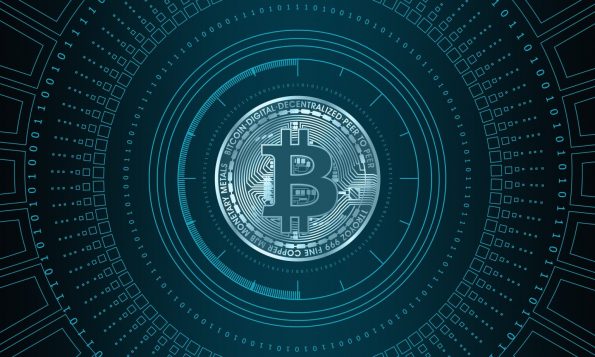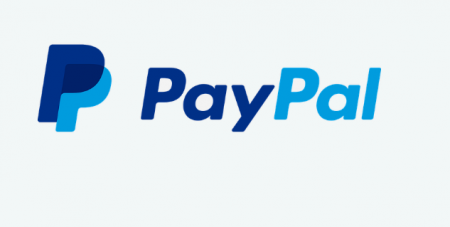The basic idea behind sending and receiving mails in a mailbox is similar to having a bitcoin address. Unlike physical mails in the mailbox, bitcoin facilitates an exchange of value.
If you wish to sell or buy anything with bitcoin, you need an address. If you are sending and receiving funds from a location, you must have an address.
With Bitcoins, the location to send and receive digital assets is facilitated by the internet. And each transaction is unique with a combination of letters and numbers that is known as a Bitcoin address.
A Bitcoin address is where a Bitcoin fund is coming from. It is also the destination of a Bitcoin payment. Friends who are sending Bitcoins to each other are sending from one Bitcoin address to another, basically.
How to get a Bitcoin address
You need to download a Bitcoin wallet to get a Bitcoin address. A Bitcoin wallet is basically software that facilitates the exchange of Bitcoin assets in a secure network.
Another advantage of having a wallet for your Bitcoin is to store your private key. Bitcoin wallets are not safe without a private key. Hence, your Bitcoin wallet is your Bitcoin password. The software creates a new Bitcoin address every time an invoice is created. Your wallet software also receives payment requests once Bitcoins are coming in.
There are four types of Bitcoin wallets viz; mobile, web, desktop, and hardware.
Mobile Wallets
For convenience’s sake, mobile wallets are very easy to access. The wallet provider stores your private key either on its app or your smartphone. A downside of using mobile wallets is a compromise of your wallet’s data.
Another person knows your phone’s password and can access the private key on it. The person can maliciously send your funds to another Bitcoin address, which could be theirs or an accomplice’s.
Mobile wallets are convenient, yet they are largely unsafe. Add a security verification step to your wallet to tackle its loose security. Allowing fingerprint authentication before your mobile wallet is accessed, allows you to sleep with your two eyes closed.
Mobile wallets are available for download on the app store for iOS, Android, and Windows Phone. A few of them are Airbitz Bitcoin, ArcBit, Bitcoin Wallet, Bither, Bitpie, BRD, Blockchain, BTC, Coin. Space, Circle, Coinomi, Edge, Electrum, Copay, GreenAddress, GreenBits, HandCash, Jaxx, Simple Bitcoin, Mobi, and Mycelium.
Web Wallets
In terms of risk, web wallets double down a little compared to mobile wallets. They are also very convenient to use.
If another person knows your personal information such as phone number, email address, and date of birth, they can impersonate you. They may in fact request an unsolicited change of number from your network service provider. Can you do much in this case? I do not think so.
Some daring impersonators hit your email account in a bid to change your own email to their own. They ask your email service provider to text a code to change the password to their phone.
Like that, they brute force into your email account requests a “change my password” mail to your Bitcoin wallet provider, and successfully hack into your digital account, leaving with your precious funds.
A security measure that you can add to your cell phone carrier is to request a passcode before your account details can be changed or modified. To use a web wallet, find a wallet provider’s website to sign up. Here is a couple of them for your convenience: BitGo, Blockchain, CoinBase, Coin. Space, Jaxx, and BTC
Desktop Wallets
These are software programs that are installed on your computer. In terms of security, they are more secure than web and mobile wallets. To send and receive Bitcoin funds in a secure network, consider encrypting your data and relevant information.
Encrypt the private key and recovery phrases of your account with an encryption-enabled Desktop wallet.
The following desktop wallets should be installed on your computer; Bither, ArcBit, Bitcore, Bitcoin Unlimited, Bitcoin XT, Bitcoin Core, Bitpie, Electrum, Exodus, Electron Cash, GreenAddress, Jaxx, and mSIGNA.
Hardware Wallets
If you are thinking about keeping your Bitcoins offline, Hardware wallets are the way to go. They are basically physical wallets for your Bitcoins. Apart from being physical, they are also offline hardware that can be used to exchanged value, goods, and services. Once you are done purchasing or transacting, store your wallet safely offline.
With hardware wallets, your Bitcoins can be stored securely since you have limited the exposure of your funds.
These are the couple of hardware wallets that you can purchase online: BitBox, CoolWallet S, KeepKey, Ledger Nano S, and Trezor.
What a Bitcoin address looks like
The characters that make up a Bitcoin address are 26-35. Not only do the characters contain letters, but they also consist of alphabets. A Bitcoin address starts with “1”, “3”, or “bb1”.
There are three Bitcoin address formats that are used:
1. P2PKH whose address begins with the number “1”. Example: 1cBeDHF………………..
2. P2SH whose address starts with the number “3”. An example is 3KQ98…….
3. Bech32 whose address begins with “bc1”. An example is bc1…….
Conclusion
Crypto experts advise strongly that the safest way to store your crypto assets is in cold storage options like hardware wallets and paper wallets. To avoid falling victim to hackers, only use trusted software wallets, if you must.







